Feria: Rural memoirs stir longing for Spain's past
- Published
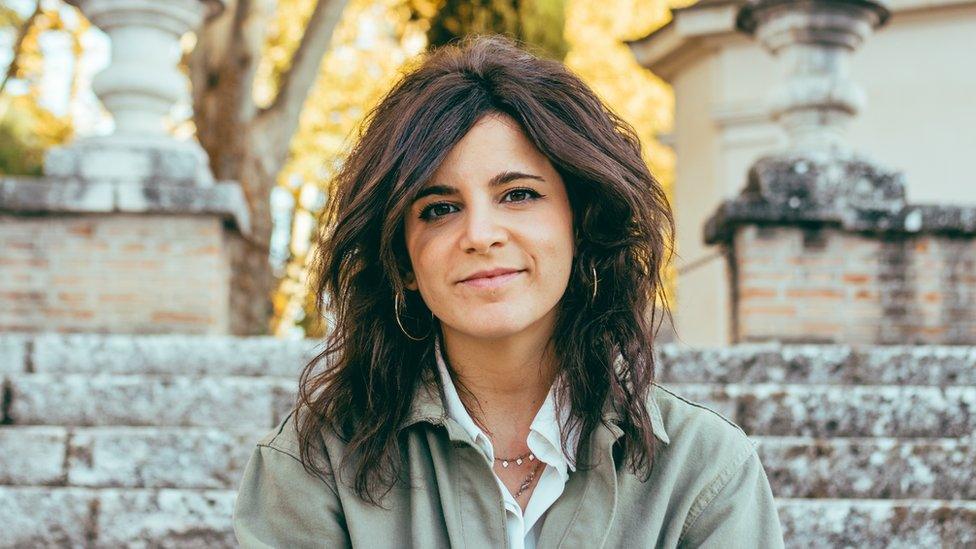
When Ana Iris Simón's autobiographical book reflecting on life in rural Spain came out in the autumn of 2020, her ambitions were modest.
"I wrote the book thinking that about four people would read it," she says. "So I wrote it with the freedom that gives you."
A year later her first published book has turned into a phenomenon. Now in its 13th edition, Feria has not only become a bestseller but has triggered frenzied debate and thrust its 30-year-old author into the spotlight.
Simón was born in Castilla-La Mancha, the region in central Spain renowned for its flat geography, agriculture and status as the setting for the adventures of Don Quixote.
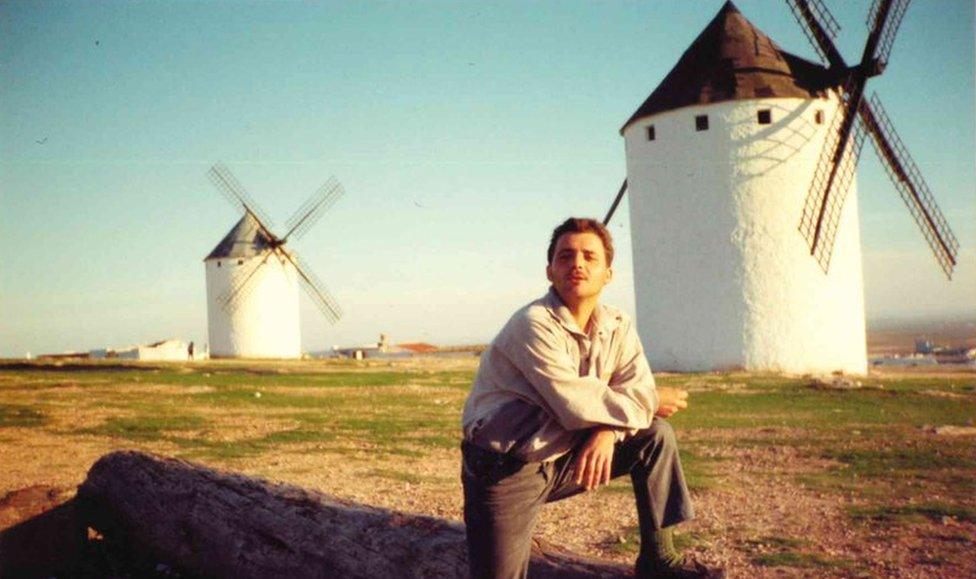
Simón's father and mother hailed from a region that provided the backdrop to Don Quixote
Her parents' families were from two villages there and her maternal grandparents were feriantes, or travelling fairground workers, giving the book its title.
"For a long time, since the nineties, we've had a lot of literature which is written for people in cities, by people in cities and about life in cities," says Simón.
"I was born in a tiny little village and lived in an even smaller one and I knew that important things didn't happen there," she says.
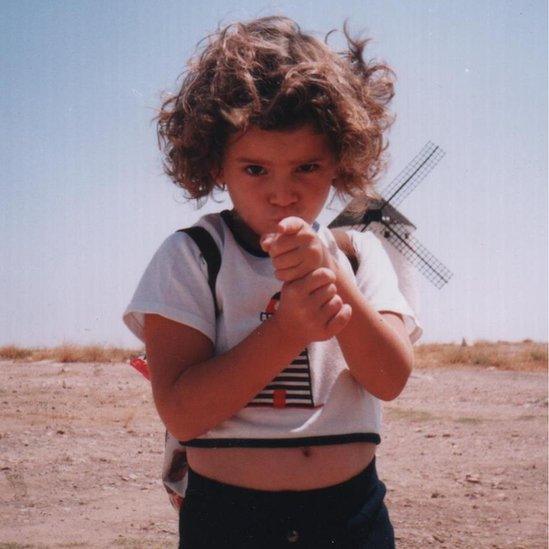
Ana Iris Simón remembers an idyllic childhood

Simón is no longer embarrassed by her origins and in Feria she delves into small-town life through colourful and often heartrending descriptions of her own experiences - such as secretly sneaking into church to take communion, or her father explaining her mother's recent miscarriage by showing her a jar containing the foetus.
"My family happens to be pretty normal, so through them you can see the recent history of the Spanish working class," she says.
In some ways, Feria resembles the Neapolitan novels of pseudonymous author Elena Ferrante, which offer a vivid view of life growing up in Italy.
But as well as its autobiographical content, there is a strident, moral tone to Feria, as Simón takes aim at a range of targets that she believes have tainted Spanish society and culture, including consumerism, classism, the marginalisation of rural Spain - and even reggaeton music.
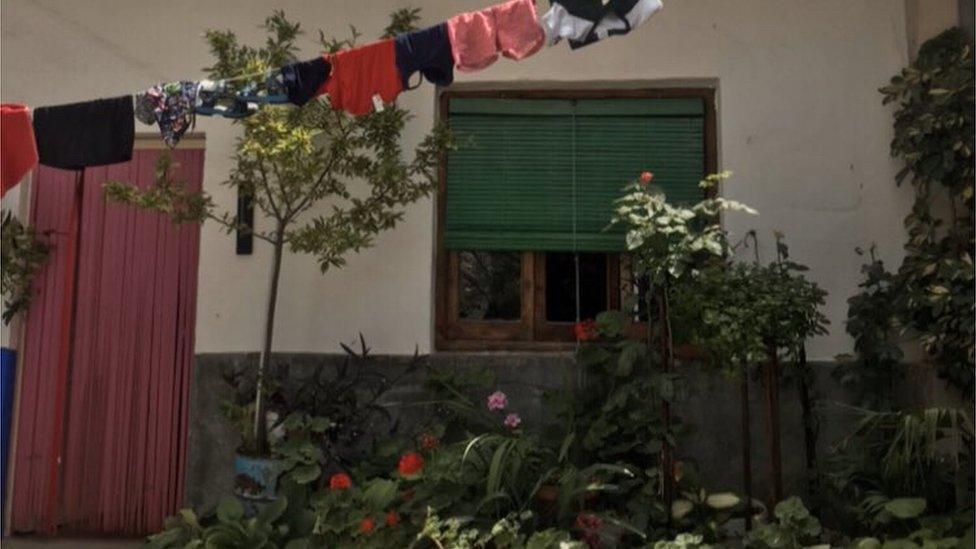
Life is slower in the villages of Castilla-La Mancha
"I envy the life my parents had at my age," she writes in the book's first sentence, pointing out that they had a daughter, a house and "a Thermomix" kitchen appliance by then. She, on the other hand, is childless, shares a flat and earns €1,000 (£850) per month, despite having gone to university and travelled widely.
In many ways, Simón is expressing the ongoing frustrations of the "indignados" generation, who took to the streets and squares of Spain 10 years ago to protest against an economic and political system that left many of them disenfranchised and unable to enter the jobs and housing markets.
Yet some commentators on the left have warned that the author has smuggled a right-wing treatise on to bookshelves, claiming that Simón is romanticising rural and family life - both often seen as the domain of Spain's traditional, Catholic right.
"It may not be a fascist book, but without a doubt it is a book that wouldn't upset a fascist," wrote leftist essayist Pablo Batalla Cueto.
Simón courted further controversy in May, when she was invited to the prime minister's residence as part of the leftist government's plan to revive rural Spain. In a short speech, Simón highlighted the plight of young people, while lambasting Spain's treatment of its own countryside and blaming many of its ills on membership of the European Union.
"The global village ruined the real village," she said.
In June, the leader of the far-right Vox party, Santiago Abascal, was spotted grasping a copy of the book as he spoke in the Spanish congress, proof for many of the book's supposedly dark underbelly.

Eagle-eyed observers spotted the far-right leader standing in congress with a copy of Simón's book
"I don't think I'm romanticising anything," says Simón, who is shocked at how some have interpreted the book and prefers not to position herself on the political spectrum.
She points out that it does examine the downsides of life in a small town, such as the economic difficulties or, for example, having to hear about the sexual proclivities of the so-called "village idiot". She writes: "It's not all about fresh air and saying hello to everyone in the street and going out on your scooter and coming home at sunset."
Simón has recently been hired by national newspaper El País as a columnist, confirming her arrival as a public figure. She attributes her extraordinary last few months to the broad appeal of Feria.
"It's about things which are very basic: death, love, the family," she says. "And it's nice to know that in the end we all have something in common, however much we might want to think otherwise."
Feria is published in Spanish by Círculo de Tiza.

You may also be interested in:
The decline of coal has led to a revival of rural traditions in Asturias
Related topics
- Published2 February 2017
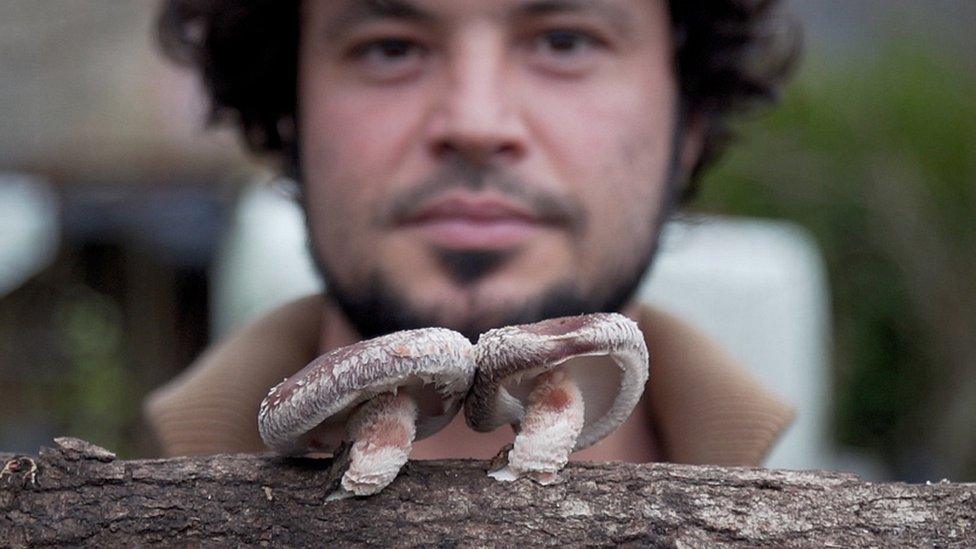
- Published26 August 2021
